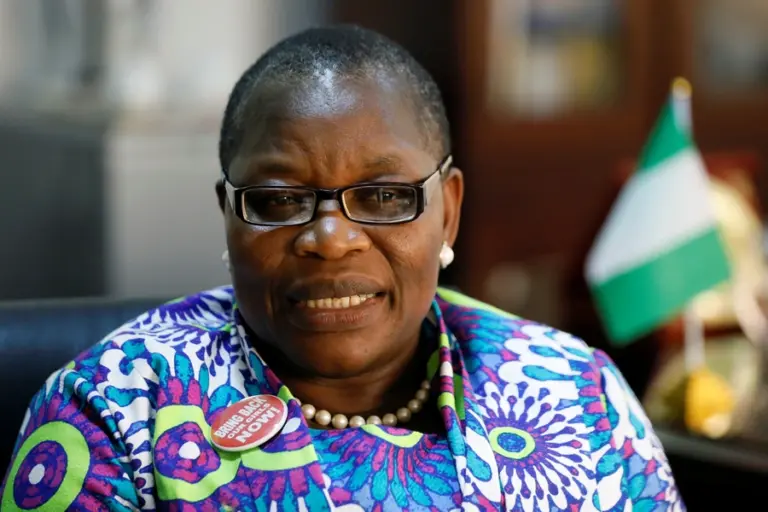The Nigerian Bar Association’s 2025 Annual General Conference (AGC) in Enugu will be remembered for two things: the spectacle of celebrity “new wigs” making headlines, and the searing reminder from Oby Ezekwesili that the survival of Nigeria’s democracy may depend on how the legal profession responds to its duty. Sadly, most public commentary gravitated toward the first.
The buzz about Deji Adeyanju, Dino Melaye, and Osita Chidoka’s seating positions and ceremonial prominence made for viral chatter but trivialized the moment. The real story—the one Ezekwesili forced into the open—was not about robes or rituals. It was about whether Nigerian lawyers will remain the moral compass of a fragile Republic or drift further into complicity with power.
A Call Against Capture
Ezekwesili’s speech was no polite address. It was a warning. She accused parts of the Bar of becoming too cozy with political patrons, eroding public trust and leaving citizens defenseless against manipulation. For her, the profession’s first duty is constitutional fidelity and protection of democracy, not service to “lousy politicians.”
This charge hit directly at the legal community’s uneasy reality: the Rules of Professional Conduct require honesty and discipline, yet breaches of integrity have become normalized. The comparison to past icons like Gani Fawehinmi was deliberate—reminding lawyers that courage and sacrifice once tilted Nigeria’s scales of justice, and must do so again.
The Constitution as Compass
Ezekwesili framed the Bar as the last guardrail against abuse of power. Nigeria’s Constitution is unambiguous: the security and welfare of citizens must be government’s primary purpose. But insecurity, poverty, and inequality tell a different story. Unless lawyers and judges enforce these provisions with courage, she warned, democracy risks hollowing out into “mere electoral ritual.”
Global parallels underscored her point: South Africa’s courts compelling government to act on housing rights, India’s public interest litigation expanding access to justice, Kenya constitutionalizing socio-economic rights. Nigerian lawyers, she argued, cannot continue to plead helplessness—they must innovate within their own legal framework to bring rights to life.
Law Meets Lived Reality
Perhaps Ezekwesili’s most powerful pivot was linking abstract law to the real struggles of citizens. Over 133 million Nigerians live in multidimensional poverty. A Constitution that guarantees welfare but coexists with deepening misery is not credible. Lawyers, she urged, must expand pro bono services, defend socio-economic rights, and drag governments to account where necessary.
Her critique of the 2023 fuel subsidy removal crystallized this argument. A sound reform, yes, but implemented without cushioning the poor. That, she insisted, violated constitutional obligations. In other words: governance without citizen protection is unconstitutional.
Governance, Institutions, and Development
Ezekwesili’s charge extended beyond the courtroom. Weak legal institutions, she noted, enable corruption, scare away investment, and perpetuate inequality. The Bar’s silence or complicity in such dysfunction is itself a governance failure. Citing UN Sustainable Development Goal 16 and examples like Singapore’s transformation through strong legal accountability, she urged lawyers to see themselves not as neutral observers but as architects of sustainable development.
The Office of the Citizen
At the heart of her message was a familiar refrain: lawyers must never forget who they ultimately serve. The “Office of the Citizen,” she reminded the NBA, is the highest office in a democracy. Defending it requires courage—taking unpopular cases, exposing electoral malpractice, and insisting on accountability even when it costs prestige or convenience.
This is the tradition of civil rights lawyering worldwide, from American courtrooms dismantling segregation to Nigerian activists challenging military dictatorship. It is also the only path to making democracy more than slogans for ordinary Nigerians.
Stripped of Theatre, Left With Truth
What lingered after Enugu was not Ezekwesili’s laughter lines or the ovations, but the uncomfortable question she left behind: Will Nigerian lawyers continue to sell tomorrow’s Republic for today’s gain?
The fixation on who sat where at the conference hall was, at best, comic relief. At worst, it symbolized how easily substance can be buried beneath spectacle in Nigerian public life. Yet, the stakes are too high for distraction.
A Mirror and a Choice
Ezekwesili held up a mirror to the legal profession, and what stared back was sobering. The Bar and the Bench stand at a crossroads: remain entangled in political theatre, or reassert themselves as custodians of constitutional order, citizen welfare, and democratic survival.
History has put Nigeria’s lawyers at decisive turning points before. Today is another. And the choice they make will echo not just in their profession but in the destiny of the nation itself.

